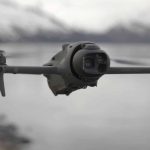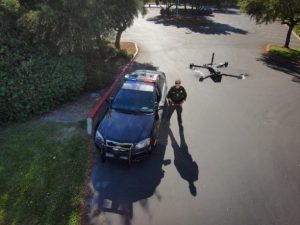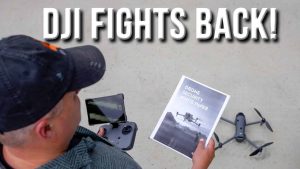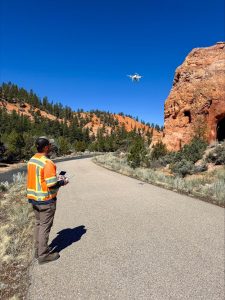DJI Drone Delays: Navigating Customs Hold-Ups in the U.S.
Picture this scenario: You’ve ordered the latest DJI drone, eagerly anticipating its arrival to kick off your aerial projects or an important business mission. However, your excitement turns to impatience as you see “Held by Customs” on your tracking app. Weeks pass by with no drone and no updates, just growing frustration. For many U.S. drone enthusiasts and professionals, this has become an all-too-common experience.
In this article, we delve into the reasons behind these DJI drone delays, their impact on U.S. pilots and businesses, and strategies for coping with this challenging situation.
Understanding the Delays: What’s Happening?
Customs Holds and Forced Labor Concerns
The crux of the issue lies with U.S. Customs and Border Protection (CBP), which is currently holding certain DJI drone shipments. The reason? Concerns around the Uyghur Forced Labor Prevention Act (UFLPA), intended to block goods produced with forced labor from China’s Xinjiang region, from entering the U.S.
CBP has flagged some DJI drones and accessories for further investigation, suspecting possible forced labor links in their production. DJI has consistently rejected these claims, stating their production facilities are located in Shenzhen and Malaysia, not Xinjiang. According to DJI, regular audits by U.S. retailers have shown no evidence of forced labor violations.
A Closer Look: Misunderstanding or More?
DJI considers this situation a “customs-related misunderstanding,” emphasizing transparency and ongoing cooperation to resolve the matter. However, the immediate effect is severe: drones stuck at entry ports, with users and businesses left waiting.
The Impact on U.S. Pilots and the Drone Market
Challenges for Pilots and Enthusiasts
- Extended wait times: Customers report delays stretching out for weeks.
- Uncertain timelines: Retailers are often in the dark about which shipments are affected or when they might be cleared.
- Widespread issue: This problem is pervasive, with numerous accounts shared on forums and social media.
Business Disruption
DJI drones dominate the U.S. market, supporting diverse sectors like real estate and public safety. The CBP holds affect both consumer and commercial segments:
- Retailers face staff layoffs due to the inability to sell drones.
- Service providers face equipment shortages, impacting operations.
- The unpredictability complicates business planning and service delivery.
Escalating Prices
Recent tariffs in 2025 have increased the cost of DJI drones by 30–35%. A model that cost $999 last year now sells for $1,300, putting additional pressure on both hobbyists and professionals.
Political and Regulatory Influences
Trade, Human Rights, and National Security Issues
The tense U.S.-China relations in 2025 play a significant role in these developments. Lawmakers are scrutinizing DJI drones over national security, data privacy, and forced labor concerns. Although no nationwide ban exists, heightened border inspections enforce new laws, especially the UFLPA, requiring manufacturers like DJI to prove their supply chain integrity.
Which DJI Drones Are Affected?
Inconsistent Holds
Not all DJI drones face customs holds. The pattern varies:
- Larger shipments, new releases are more likely to be flagged.
- Accessories, including batteries and chargers, often face delays.
- Smaller shipments might pass, but there’s no certainty.
Real-World Impact: Case Studies
Case Study 1: The Waiting Game
A Texas pilot waited nearly a month for a DJI Flip for a mapping contract, losing both the job and the company’s reputation due to the delay.
Case Study 2: Retailer Challenges
A major retailer had to lay off staff and deal with customer complaints and refund requests during peak season due to shipment issues.
Case Study 3: Online Support Communities
Drone enthusiasts share delays on forums, marking this as a widespread issue with many reporting stalled shipments awaiting customs clearance.
DJI’s Strategy: Response and Actions
Transparency Efforts
DJI is providing documentation to U.S. authorities to prove the integrity of their supply chain, asserting the absence of forced labor. They encourage patience as they work towards resolution.
Advice for U.S. Drone Consumers
Guidelines for Dealing with Delays
- Anticipate delays when ordering DJI drones.
- Purchase from U.S. stock to avoid customs holds.
- Stay informed through updates from retailers and DJI.
- Consider other brands if timing is critical, but recognize DJI’s unmatched market offerings.
- Reach out to customer support for updates on delayed orders.
Human Stories: Real Impact
Behind customs delays are personal stories—photographers, startups, hobbyists all affected. Radical transparency and humor can alleviate some of the frustration, fostering a supportive community experience.
The Future of DJI Drone Availability in 2025
The current environment poses uncertainties with no immediate solutions. DJI’s cooperation and industry advocacy aim to ameliorate the situation, but expect ongoing supply volatility and price increases.
Summary: DJI Drone Delays Overview
- DJI drones face customs holds due to forced labor concerns.
- Shortages and price hikes represent the new norm.
- These challenges affect businesses, pilots, and retailers.
- DJI is working with authorities to address these issues.
- Buyers should plan for delays and stay updated on developments.
Your perseverance and passion keep the drone community resilient. We’re here to support you through each hurdle, all the way to the triumphant flight of your new DJI craft.













